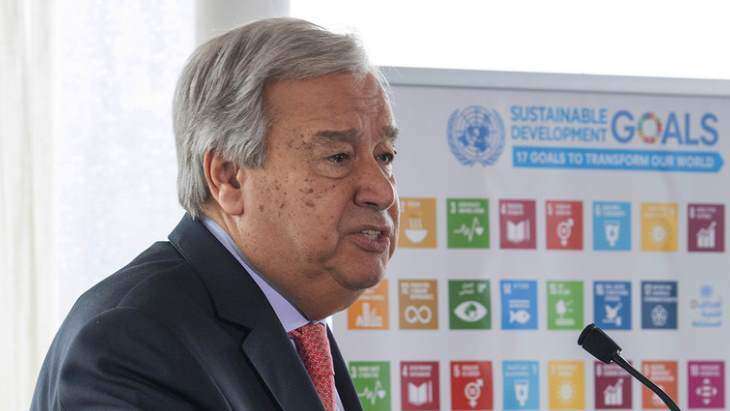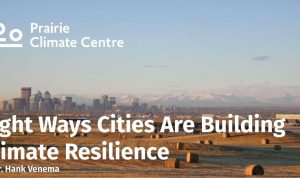Global Leaders Meet to Tackle Climate Change, a crucial gathering aimed at addressing one of the most pressing issues of our time, brings together influential figures from around the globe. This event serves as a platform for dialogue and collaboration, focusing on innovative strategies to combat climate change and mitigate its impacts. As nations grapple with environmental challenges, the urgency of collective action becomes increasingly clear, making this meeting not just timely but essential for our planet’s future.
The conference highlights the importance of sustainable practices, international cooperation, and the role of technology in driving climate action. Attendees will share successful initiatives, explore new policies, and engage in thought-provoking discussions on how to achieve global climate goals.
In today’s fast-paced world, where technology and lifestyle choices intersect, understanding the nuances of various trends can significantly enhance our day-to-day experiences. Whether it’s the rise of remote work, the explosion of social media culture, or the gradual shift towards sustainability, each of these movements has transformed the way we live, work, and interact with one another. This article delves into some of the most pertinent trends and their impacts, offering a comprehensive overview of how they shape our reality.### The Remote Work Revolution One of the most significant shifts in recent years has been the rise of remote work.
This transition, accelerated by the global pandemic, has changed the traditional office landscape forever. Companies that once relied on in-person collaboration have adapted to a virtual environment, leveraging technology to maintain productivity. Remote work offers numerous benefits, including enhanced flexibility and better work-life balance. Employees can tailor their schedules to fit personal commitments, reducing stress and increasing job satisfaction. For employers, the ability to hire talent from anywhere in the world opens up a wider talent pool, allowing for more diversity and inclusion in the workplace.However, this shift is not without its challenges.
The blurring of boundaries between work and personal life can lead to burnout, while the lack of face-to-face interaction can impact team dynamics and company culture. As we look to the future, organizations must find ways to foster collaboration and maintain a sense of community, even in a virtual setting.### The Social Media LandscapeIn parallel with the rise of remote work, social media continues to shape our social interactions and cultural norms.
Platforms like Instagram, TikTok, and Twitter have become central to how we communicate, share information, and express ourselves. Social media has democratized content creation, giving everyone a voice. This has led to the emergence of influencers who can sway public opinion and dictate trends. Brands now leverage these influencers to reach their target audiences more effectively, recognizing the importance of authenticity in marketing.Moreover, social media serves as a powerful tool for social movements.
From #BlackLivesMatter to climate activism, platforms allow for rapid dissemination of information and mobilization of support. However, the rapid spread of misinformation is a growing concern, prompting calls for better regulation and accountability from social media companies.### The Push for SustainabilityAs awareness of climate change and environmental issues grows, there’s a palpable shift towards sustainability across various sectors. Consumers are becoming more conscious of their choices, opting for brands that prioritize eco-friendly practices.
This shift is not just a trend; it’s a fundamental change in consumer behavior.Brands are responding by integrating sustainable practices into their business models. From sourcing ethical materials to adopting carbon-neutral shipping methods, companies are finding innovative ways to meet consumer demand while minimizing their environmental impact. Additionally, businesses are increasingly transparent about their supply chains, allowing consumers to make informed choices.The sustainability movement also extends to food.
Plant-based diets are on the rise as individuals seek healthier and more environmentally friendly alternatives to meat. This shift is not only promoting personal health but also addressing the significant ecological footprint associated with traditional livestock farming.### The Influence of Technology Technology continues to evolve at an unprecedented pace, influencing nearly every aspect of our lives. Artificial intelligence (AI), machine learning, and automation are transforming industries, streamlining processes, and enhancing efficiency.
In healthcare, for instance, AI is being utilized to improve diagnostics, personalize treatment plans, and even assist in surgical procedures. In education, online learning platforms have made education more accessible, enabling students to learn at their own pace and from wherever they are.However, the rapid advancement of technology also raises ethical and social considerations. Issues such as data privacy, job displacement due to automation, and the digital divide must be addressed to ensure that technology serves as a force for good.### The Importance of Mental HealthIn the wake of these changes, mental health has emerged as a critical area of focus.
The pressures of modern life, compounded by social media and remote work, have led to increased rates of anxiety and depression. Organizations are beginning to recognize the importance of mental health in the workplace. Initiatives such as mental health days, access to counseling services, and wellness programs are becoming more common. Employers are realizing that prioritizing mental health not only supports employees but also enhances overall productivity and morale.On an individual level, there is a growing acceptance of seeking help and talking about mental health issues.
This shift is fostering a culture of openness and understanding, encouraging individuals to prioritize their well-being.### The Future of Education As we navigate these societal changes, the landscape of education is also evolving. Traditional classrooms are being complemented by online learning environments, allowing for more personalized and flexible learning experiences. The pandemic has accelerated the adoption of technology in education, with educators finding innovative ways to engage students virtually.

Gamification, interactive simulations, and collaborative online projects are just a few examples of how technology can enhance learning.However, the shift to online education also presents challenges, particularly concerning accessibility. Not all students have equal access to technology and the internet, which can exacerbate existing inequalities. As we move forward, it’s essential to address these disparities to ensure that all students have the opportunity to thrive in a digital learning environment.### The Rise of Health ConsciousnessHealth consciousness is also on the rise, with individuals becoming more proactive about their physical well-being.
The COVID-19 pandemic has underscored the importance of maintaining good health, prompting many to adopt healthier lifestyles. Exercise routines, nutrition tracking apps, and wellness challenges are gaining popularity as people seek to improve their physical fitness. The rise of wearable technology, such as fitness trackers and smartwatches, has made it easier for individuals to monitor their health metrics and stay accountable to their goals.This focus on health extends beyond physical fitness; mental well-being is equally prioritized.
Mindfulness practices, yoga, and meditation are becoming mainstream, encouraging individuals to cultivate a balanced lifestyle that nurtures both body and mind.### Conclusion In conclusion, the interplay of these trends—remote work, social media, sustainability, technology, mental health, education, and health consciousness—paints a vivid picture of our evolving society. As we adapt to these changes, it’s essential to remain mindful of the challenges and opportunities they present.
By fostering a culture of inclusivity, accountability, and well-being, we can navigate this new landscape successfully. The future is bright, and with thoughtful consideration and action, we can create a world that not only embraces change but thrives on it. As we continue to explore these trends, it’s crucial to engage in conversations that promote understanding and collaboration. Each of us plays a role in shaping the future, and by working together, we can build a society that reflects our collective values and aspirations.
FAQ Resource: Global Leaders Meet To Tackle Climate Change
What is the main goal of the meeting?
The main goal is to foster collaboration among global leaders to create effective strategies for combating climate change.
Who are the expected participants?
Participants typically include heads of state, environmental experts, policymakers, and representatives from various sectors.
How often do these meetings occur?
Such meetings are often held annually, though some special summits may occur more frequently, especially during critical climate events.
What types of initiatives are usually discussed?
Discussions often include renewable energy projects, carbon reduction strategies, and sustainable development goals.
How is the effectiveness of the meetings evaluated?
Effectiveness is typically evaluated based on the commitments made, actions taken post-meeting, and progress toward established climate goals.






